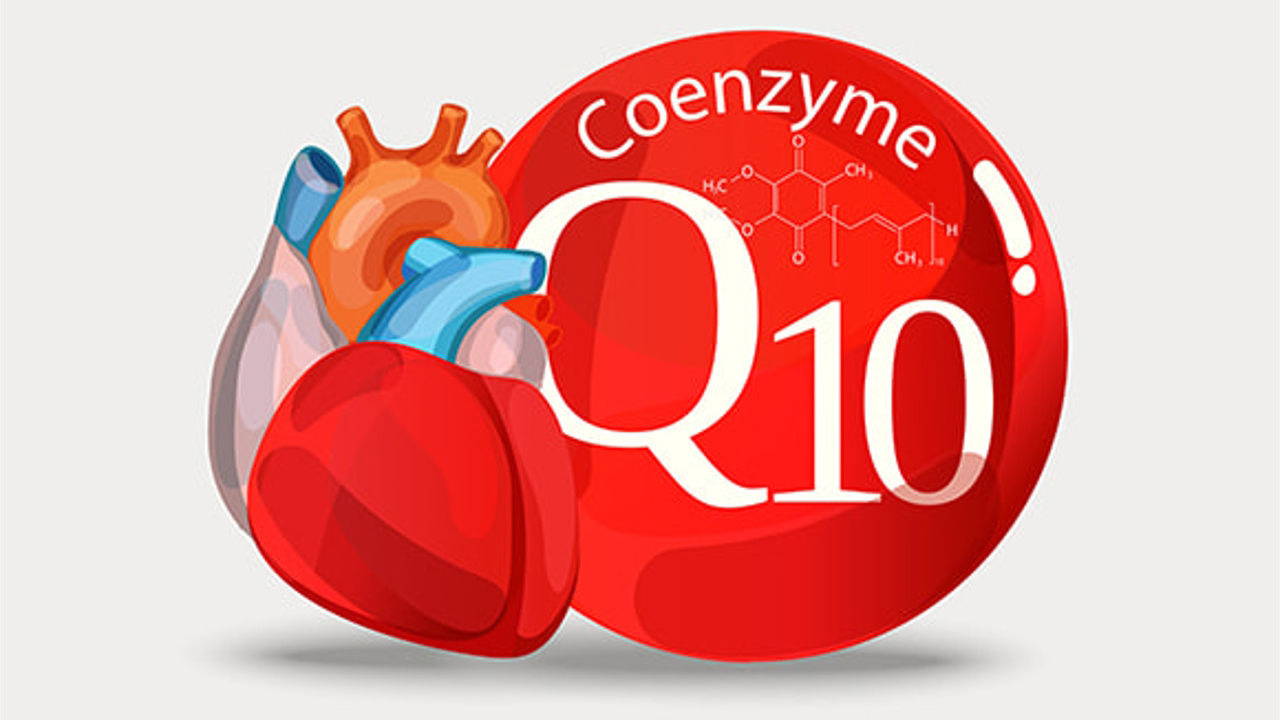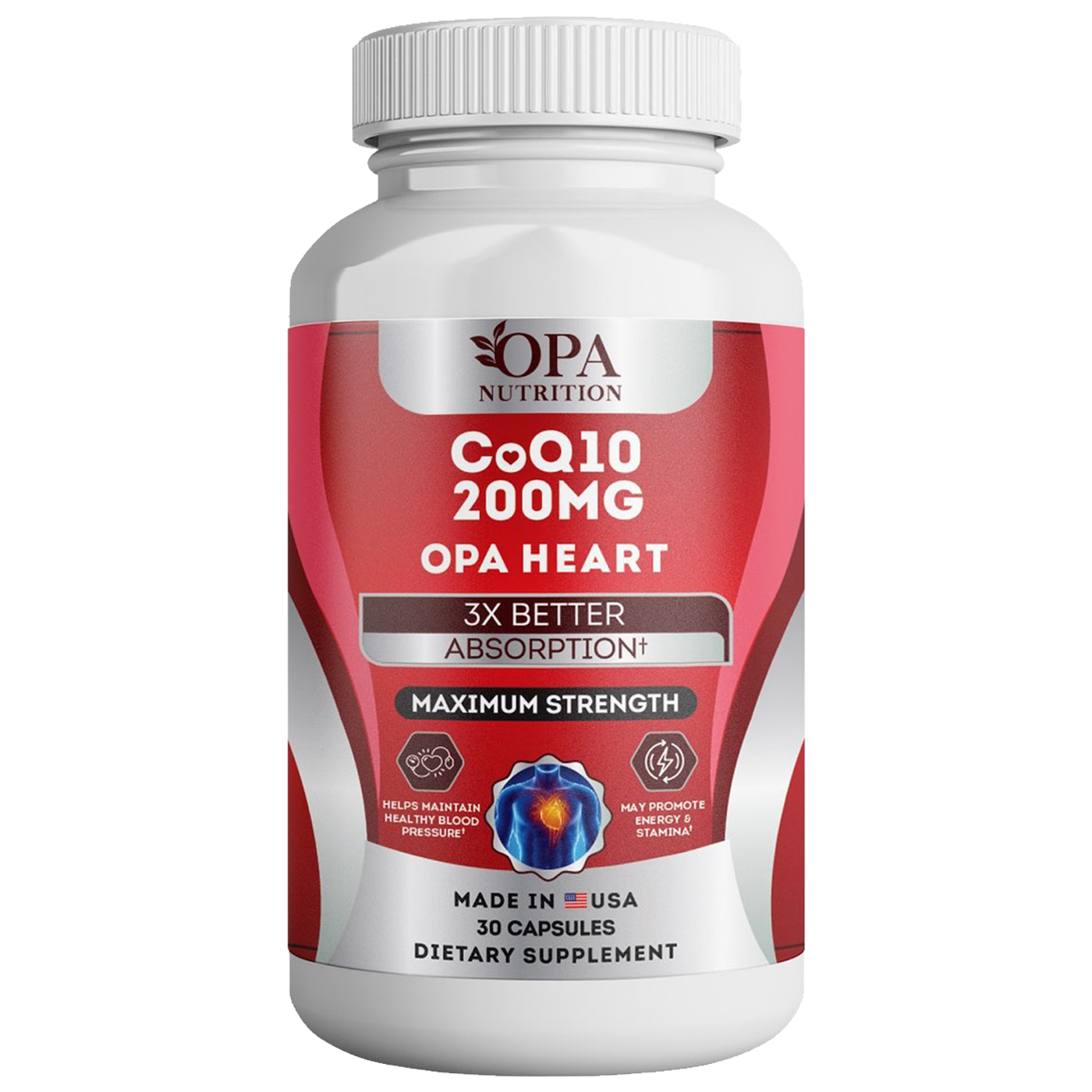CoQ10 benefits the heart by promoting healthy cellular energy production, reducing oxidative stress, and supporting overall cardiovascular function. Read more about the benefits of CoQ10 by reading our CoQ10 Fertility or CoQ10 Benefits COVID articles.
Heart disease, including cardiovascular disease and coronary artery disease, is a major health concern worldwide. It's estimated that over 17 million people die from cardiovascular diseases each year, making it the leading cause of death globally. Risk factors such as high blood pressure, diabetes, and high levels of human low-density lipoprotein (LDL) cholesterol can contribute to the development of heart disease. Additionally, chronic heart failure, heart attack, and serious heart failure can lead to debilitating symptoms and decreased quality of life.
Recent research has suggested that Coenzyme Q10 (CoQ10), a natural antioxidant found in our bodies that helps with energy production, may have potential benefits for heart health. Clinical trials and systematic reviews have found that CoQ10 supplementation can improve left ventricular function, reduce oxidative stress-induced injury, and lower systolic blood pressure in individuals with congestive heart failure, diastolic dysfunction, and III systolic heart failure. Additionally, some studies have suggested that CoQ10 supplementation may help reduce major adverse cardiovascular events in statin therapy patients.
In this blog post, we'll explore the research behind CoQ10 and heart health, including its potential benefits for individuals with coronary artery disease, its effects on blood pressure, and its role in energy production. We'll also examine the safety and efficacy of CoQ10 as a dietary supplement, including any potential side effects such as muscle pain. Finally, we'll discuss how CoQ10 compares to other heart health supplements such as fish oil supplements and the importance of consulting with your healthcare provider before starting any new supplement regimen.
Cardiovascular Health and CoQ10
Moreover, statins therapy, which is commonly used to lower cholesterol levels, has been found to decrease CoQ10 levels in the body, leading to potential negative effects on heart health. Therefore, CoQ10 dietary supplements may help mitigate the adverse effects of statins therapy and support heart health.
However, more research is needed to fully understand the benefits of CoQ10 supplements on heart health. Some studies have found no significant difference between CoQ10 and a placebo group, leading to conflicting results. Still, systematic reviews and randomized controlled trials have shown that CoQ10 supplementation may help improve heart health in certain individuals, particularly coronary artery disease patients.
In conclusion, maintaining good cardiovascular health is essential for overall well-being. The use of CoQ10 supplements may be beneficial for individuals with heart disease, and research is ongoing to further examine the potential benefits of this compound on heart health. Maintaining a healthy lifestyle, including regular exercise, a healthy diet, and monitoring blood pressure, is also crucial in promoting heart health and preventing cardiovascular diseases.
How CoQ10 Supports Cardiovascular Health: potential benefits for heart health and blood pressure
Clinical Studies: results from research on CoQ10 and cardiovascular health
Final Thoughts on CoQ10 and Heart Health
Author

Michael has a diverse set of skills and passions, with a full-time career as an airline pilot and a dedicated focus on health and fitness consulting. He understands the importance of balancing a busy lifestyle with maintaining a healthy mind and body, and is committed to helping others achieve the same success. Michael's expertise in health and fitness is not just limited to physical training, but also extends to nutrition, stress management, and overall wellbeing. He takes a holistic approach to health and fitness, helping clients to achieve their goals in a sustainable and fulfilling way. With a strong desire to inspire and motivate others, Michael is always ready to share his time and knowledge with those who seek his guidance. Whether in the air or on the ground, Michael is dedicated to helping others live their best lives.





